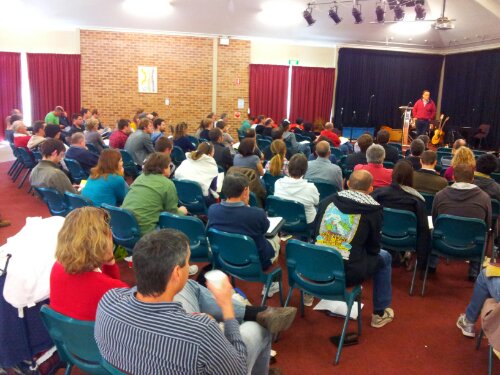In Matthew’s gospel, chapter 13 collects a number of Jesus’ parables together. They’re all provocative, but I’ve always been fascinated by the parable of the weeds.
Jesus’ story is of a man who sowed good seed, but the field was later oversown with weeds among the grain. The owner forbids his servants from eliminating the weeds, ‘lest in gathering the weeds you root up the wheat along with them’ (verse 29). The servants must wait until the harvest.
In Jesus’ explanation (verses 36-43), he tells that the harvest is the close of the age. Until then, the kingdom of heaven is growing, but not at all marked by purity.
In other words, until the final judgement of God, this world will be marked by a mixture of good and evil. There will certainly be a division between the good things of the kingdom and the weeds of the evil one. Yet God’s judgement is delayed for a purpose: to provide safety now for those who will be be safe at the judgement.
In a very short story, Jesus directly addresses the problem of on-going evil. Jesus agrees that the presence of evil is awful. Evil remains evil, and must be ‘gathered and burned with fire’. Evil intrinsically prompts God’s servants to ask, ‘Shall we get rid of this now?’ At the same time, the delay in elimination of evil serves a divine purpose.

For Christians, this is just one passage from the Bible that we draw on to consider the real difficulty known as the problem of evil. It’s one passage among many. Christians have a long history of admitting the pain of persistent evil.
So Christians have many valuable ways to talk with our friends who ask, ‘How can there be a God if evil exists?’
But there’s a surprise. When I hear people ask this, it’s usually sounds like a an attempt to stop that conversation. Your experience might be different – I hope so. All too often, the question is not asked to seek wisdom. Instead, it’s a question to close down the topic. It’s a dead end question.
When translated, the statement becomes, ‘Look, we all know that evil makes you and God irrelevant, so don’t try to trick me into talking about it.’
That’s sad for so many reasons, but I want to ask one thing: how an we help open this closed door?
Of course, if a friend really is saying, ‘Don’t talk to me’, that’s fine. I am sure, though, that some people would love to talk further. They might have a genuine question, or they might be ready to be intrigued. So here are some ideas about keeping the conversation happening.
- Be direct. ‘Are you asking that to have more conversation, or because you’d prefer not to talk about it right now?’
- Be intriguing. ‘It surprises me that people accuse Christianity of ignorance about suffering, because at centre of our faith is a violent injustice.’
- Be honest. ‘I can tell you how suffering has touched me. And how knowing God was the biggest help of all.’
- Suggest the future. ‘I feel you don’t want to talk about this now, but I hope one day will will. I’d love to be there for that conversation.’
- Be caring. ‘Has you been hurt by this kind of pain? Or by people telling you to get over it?’
What would you suggest? Have you had conversations on this topic? I’d love to hear what you learnt. Please add your comments or questions below.




